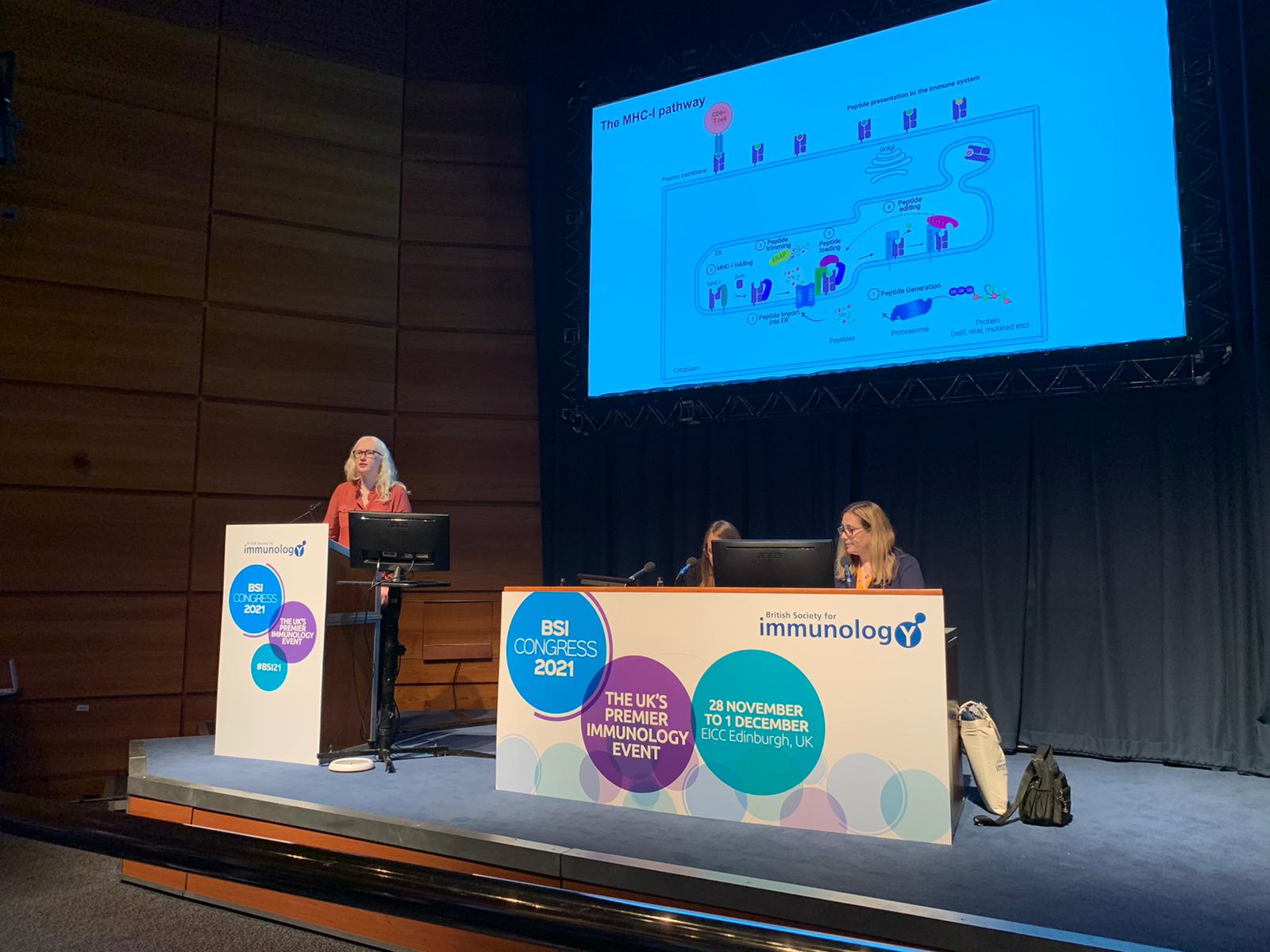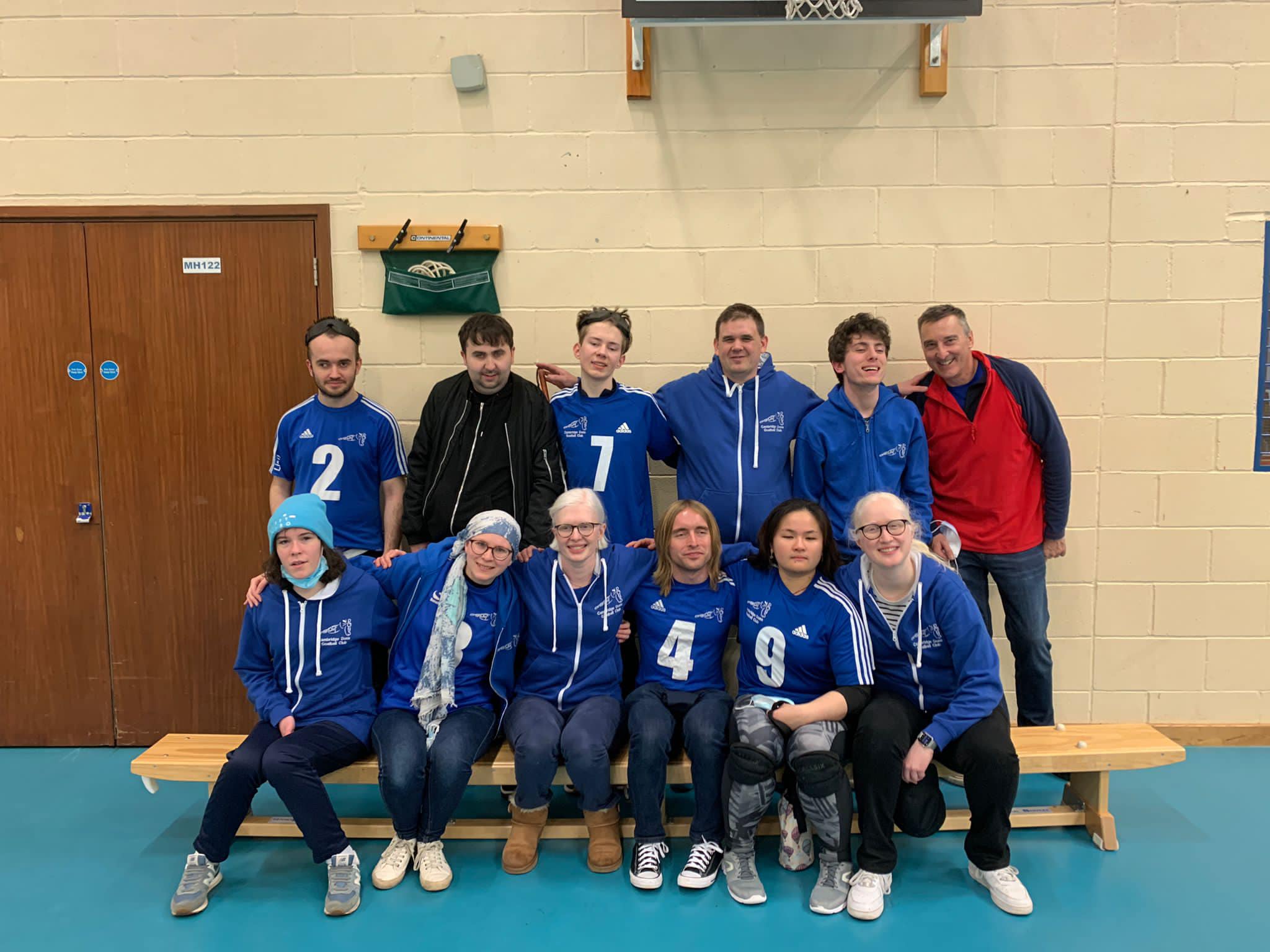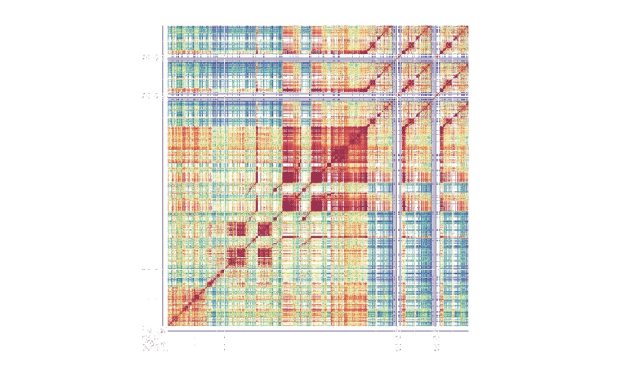Alert to dangers
- 18 March 2022
- 4 minutes
Aure Aflalo matriculated at Caius in October 2015 to read Natural Sciences (Biological). She is now completing her immunology PhD. She discusses her research and life at Cambridge with a visual impairment.
Alerting the body’s immune system to dangerous cells is a potential outcome of research conducted by Gonville & Caius College postgraduate Aure Aflalo (Immunology PhD 2015).
Aure is in the third year of her PhD at Department of Pathology and her seventh year at Caius, having initially moved from Luxembourg as an undergraduate to study Natural Sciences.
Her PhD research is focused on understanding one particular protein – TAPBPR – in the context of the Major Histocompatibility Complex (MHC) pathway. MHC class 1 molecules play a fundamental role orchestrating the immune system and inducing protective immune responses against tumours and pathogens. They do this by presenting peptides derived from pathogenic and tumourigenic proteins to the immune system.
“MHC is extremely variable between people,” Aure says.
“It’s the thing you have to match when you do organ transplants and everyone is very, very different.
“We’re trying to understand how TAPBPR works and by understanding how it works we can eventually apply it as a drug, because it can change what the cells present to the immune system. We measure how much the proteins can modify what the cells are showing to the outside.
“If you can make the immune system think that the cell is dangerous, then you can make the immune system kill that cell.”

Aure, pictured presenting her work, has albinism and is visually impaired. She uses glasses with one telescopic lens to conduct experiments.
She adds: “I like to joke that half my life involves pipetting clear liquids into other clear liquids. I wear a pair of glasses where one side has a small telescope on it to magnify it and you can adjust the focus of the telescope.
“With my right eye I’ll be looking through a magnifier and I can focus on pipetting 0.01ml and with my left eye I can see the bottle it needs to go into.”
Aure also uses magnification software on her laptop and smart phone, and has recently started wearing tinted contact lenses due to sensitivity to light. Her eyesight is stable.
“It’s purely a matter of resolution. It’s not blurry, it’s just not detailed,” she adds. “It’s like you’re a brand new 12MP camera and I’m a 1MP camera.
“Mostly the coping mechanism is to bring it closer to your face and enlarge it.”
Growing up in Luxembourg fluent in five languages – French, Hebrew, Luxembourgish, German and English – Aure was always fascinated by science and specifically how the body works.
She knew she wanted to study biology at university, but did not know where, with most Luxembourg students opting to study in France or Germany. Then she visited Cambridge on a day trip from Norwich, where she was taking part in the Model European Parliament in spring 2013.
She says: “I don’t know why, but we visited Caius. Everyone was really friendly and they started talking about grades you’d need and I thought ‘this is cool, maybe I should apply to Cambridge’.
“I decided to apply and then when it came to colleges I knew nothing, but I’d been to Caius and they were friendly. I applied to Caius, it’s central, first year accommodation is nice.”
The Natural Sciences course suited Aure. She adds: “I really thought I was going to end up doing genetics, and ended up not doing genetics. That’s NatSci for you.”
Once she has completed her PhD she hopes to take part in postdoctoral research. It is likely to mark the end of her time in Cambridge, and Aure reflected on her first weeks in the city in Michaelmas 2015.
“I can ride a bike and I was planning to when I came to Cambridge,” she says.
However, cycling in Luxembourg is quite different to Cambridge.
“I am perfectly safe riding behind someone and following them. But the traffic is the problem,” she adds.
When Aure first moved to Cambridge she had orientation sessions with the University’s Disability Resources Centre and Camsight, a local charity. She was then introduced to another student scientist with albinism called Sarah, who shared advice and is now a friend.
It was Sarah who told Aure about her magnifying glasses, demystified the use of a white cane – something Aure uses mostly at night when her vision is challenged – and goalball. Goalball is a Paralympic sport where blindfolded competitors hurl a ball containing a bell at each other and dive across the floor to prevent a goal. Tactile tape is on the floor for competitors to know their position on the field of play.

She has met other visually impaired people through goalball, pictured above, which offered a preferable alternative to the 5am walk to the Boat House.
Aure is now an ambassador and mentor for the charity Look, and shows prospective visually impaired candidates that studying at Cambridge can be a joyful experience, despite “wonky pavements”.
She adds: “I never had a white cane before I came to Cambridge. Partly pavements, lighting and things are really good in Luxembourg and I was never out and about at night.
“I’ve never been hurt in Cambridge, but it makes me more visible. My friends love the cane, especially if it’s crowded!”


